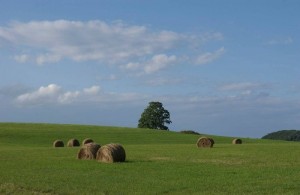
What were to become the towns of Lenox and Richmond began as one tract with the catchy name of Lot #8. Lot #8 was auctioned in 1762 as part of the Massachusetts General Court’s effort to settle newly formed (1761) Berkshire County with the sale of 10 potential township lots in this thinly populated portion of the state.
Initial Lot 8 Meeting
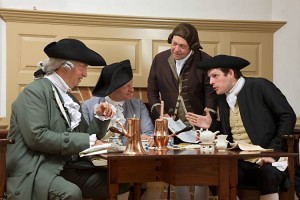
The area had been called Mt. Ephraim (now Richmond) and Yokuntown (now Lenox) in honor of the two Indian chiefs (Ephraim and Yokun)* who were the first claimants. They and their descendants had sold to the General Court and to the Brown proprietor group.
The first meeting was held April 17, 1764 at the house of Mr. John Chamberlin in Mt. Ephraim and, among other things, voted to build two meeting houses because the mountain range dividing the proprietorship made it difficult for settlers to attend worship in just one place. On July 6, 1766 Yokuntown and Mt. Ephraim petitioned the General Court for an official division.
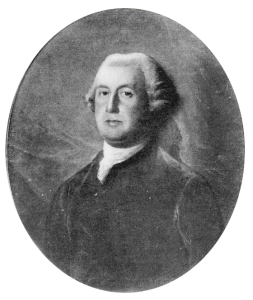
On Feb. 26, 1767, Gov. Francis Bernard signed a bill to incorporate the easterly part of the town of Richmond into the district of Lenox. As a district, Lenox was allowed to unite with Richmond each year in choosing a representative to the General Court. Apparently early Richmond and Lenox settler had better things to do than make the arduous journey to Boston as the records show them being assessed a fine in 1770 and 1771 for failing to send a representative.
Proprietorships were required to demonstrate certain conditions such as having sixty households, each having cleared seven acres. We know the Hinsdale, Post and other families were already settled in Lenox and perhaps many of the conditions for settlement had been met for Lot #8. The records we have found are not clear on whether both entities in Lot #8 had met the conditions.
Lenox and Richmond Town Names
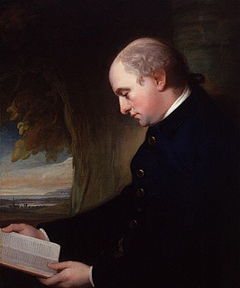
Richmond was named in honor of the Duke of Richmond and Lenox in honor of his family name, Charles Lennox (the second “n” was lost somewhere in transcription).
The Duke was apparently so honored because of his favorable views toward the colonies. During the American Revolution he would be shown to be a full bore supporter by initiating debate to withdraw British troops from the rebelling colonies in 1778. It’s not clear from readily available resources what he had done in the 1760’s to receive such an honor (although with the state of transportation in those days it might have been quite a while before he knew two towns had been named in his honor!). He is known to have been a Whig and a supporter of Parliamentary Reform – in other words part of the political party favoring the colonies. He also had the honor of being intensely disliked by George III (the enemy of my enemy….)
The seat of the Duke of Richmond (Goodwood House) is in Weshampnett — part of Chichester, Sussex, England. Many of the Pilgrims came from that part of England and during World War II, Americans would have flown out of the nearby airbase.
Lenox Town Officers Chosen
According to Field’s 1829 “History of Berkshire County, ”
“The first town officers were chosen March 5, 1767,” and that date (or the 3rd) is generally celebrated as the birth date of the Town of Lenox.
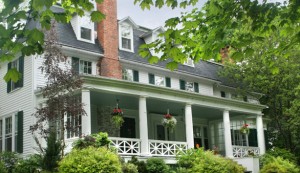
The proprietor’s minutes are spotty but the first Lenox Proprietor’s meeting (remember they were the owners and governing body) on August 3, 1768.*
Israel Dewey was one of the proprietors and the owner of the land now occupied by The Birchwood Inn. It was a tavern site in the 1760’s and the first meetings were alleged to have occurred at the then standing home and tavern.
This was an experienced and no-nonsense group that immediately moved to seek a minister, build a meeting house (in the location of the 1806 Church on the Hill that still stands today), levy taxes and build roads.
*George Tucker Manuscript
